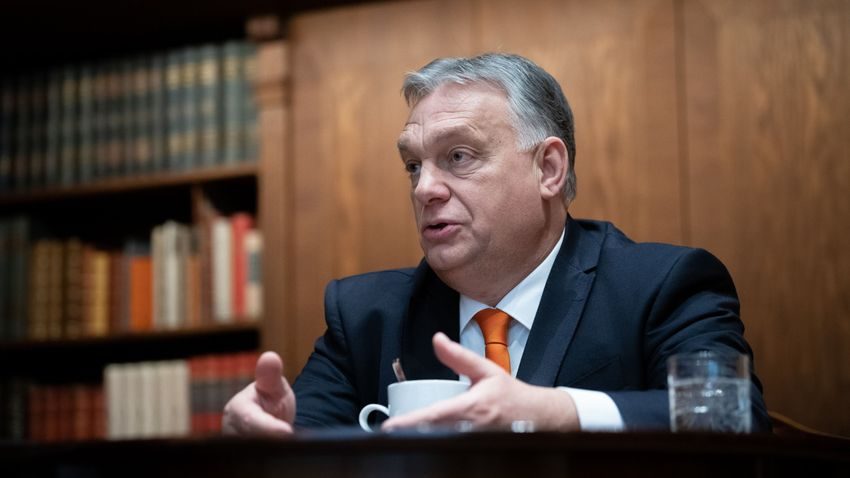Hungarian Prime Minister Viktor Orbán will hold his annual State of the Nation speech on February 18, his press chief confirmed to Origo.
According to the news site, the prime minister is expected to present his current thoughts and plans on how the government can protect Hungary in “the era of dangers,” referring to a term Viktor Orbán and his government frequently uses in connection with the war in Ukraine, and the economic and energy crises.
What I can tell you is that this has probably been the most difficult year in Hungary since the fall of communism – certainly as far as my memory serves. The whole European continent – and Hungary within it – has entered a new era, an era of dangers, and this has marked it as an extremely difficult year for Hungarians,”
Orbán told daily Magyar Nemzet in December.
Last year, the prime minister held his annual speech on February 12, two weeks before Russia invaded Ukraine. Part of his speech focused on the upcoming general elections in Hungary, but he also warned about the instabilities in the region. “Hungary’s interests are clear: first and foremost, war must be avoided. This is dictated not only by humanity, but also by Hungarian interests,” he had said.
The prime minister’s political director, Balázs Orbán, published an article earlier this month about the Hungarian goverment’s strategy for the next decade. According to Balázs Orbán,
the Hungarian strategy must address the following problems:
- avoid becoming a periphery of a large international bloc
- avoid the return of the anomalies of the former free trade model based on spontaneous market processes
- address the vulnerability of supply chains
- achieve Hungary’s accession to the group of economically developed countries.
Among the concrete solutions, the political director gave some examples:
- further increase the already record-breaking level of foreign investment in working capital
- in the field of energy, develop more links with major distribution points in the world and the wider region
- further strengthen regional cooperation
- make the Hungarian banking sector a regional and global player
- use the restructuring of higher education – already underway – to facilitate knowledge transfer to industry and distant research centers
- strengthen Hungary’s presence in the international arena, notably through public diplomacy
- strengthening the defense, ICT, food, pharmaceutical, and automotive industries.
Featured photo via Miniszterelnöki Sajtóiroda/Benko Vivien Cher
!function(f,b,e,v,n,t,s)
{if(f.fbq)return;n=f.fbq=function(){n.callMethod?
n.callMethod.apply(n,arguments):n.queue.push(arguments)};
if(!f._fbq)f._fbq=n;n.push=n;n.loaded=!0;n.version=’2.0′;
n.queue=[];t=b.createElement(e);t.async=!0;
t.src=v;s=b.getElementsByTagName(e)[0];
s.parentNode.insertBefore(t,s)}(window,document,’script’,
‘https://connect.facebook.net/en_US/fbevents.js’);
fbq(‘init’, ‘228770251004422’);
fbq(‘track’, ‘PageView’);
(function(d, s, id) {
var js, fjs = d.getElementsByTagName(s)[0];
if (d.getElementById(id)) return;
js = d.createElement(s); js.id = id;
js.src=”https://connect.facebook.net/en_US/sdk.js#xfbml=1&version=v2.12″;
fjs.parentNode.insertBefore(js, fjs);
}(document, ‘script’, ‘facebook-jssdk’));


Leave a Reply